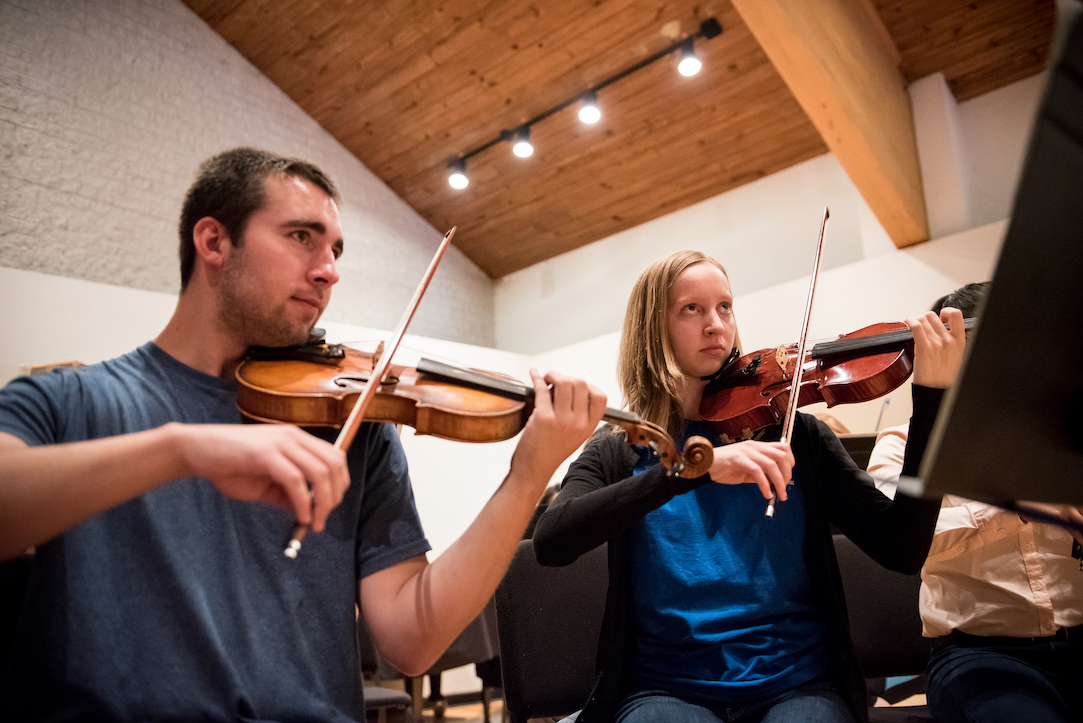Choosing where to go to college is among the most important decisions you will make. Selecting the right one can be life-changing in all the best ways. The return on your college investment can pay big dividends intellectually, socially, and financially.
Picking the wrong college, on the other hand, could lead to disappointment, discouragement, and a lesser return on your big investment.
No pressure, right?
With about 4,000 colleges and universities in the United States, how do you discern the “right” college from the wrong one? How do you narrow down that list?
Let’s walk through the college search process, from discovery to application.
What to look for in a college: 3 factors to consider
When you’re searching for a college, it might be easier to start by eliminating names from the list. If a school doesn’t have these three characteristics, it’s unlikely to hold the value you’re seeking.
- A strong commitment to mentorship. Mentorship is one of the defining characteristics of a transformative college experience. In particular, faculty mentorship is crucial. If you make even one deep connection with a faculty member, studies show you’re more likely to find success after college.
- Involved students. Students are more likely to succeed when they participate in activities outside the classroom, either through athletics, student organizations, or the arts.
- Motivated peers. Active, committed students beget other active, committed students, even if they don’t always share the same interests. You should attend a college where you’re surrounded by peers who are pushing one another in challenging and productive ways.
Finding colleges with these attributes might produce a long list of otherwise dissimilar institutions. This is where “fit” becomes all-important. Denison University President Adam Weinberg says fit is a critical part of a college search — and likely the most important factor that should go into your decision.
If the fit is wrong, it’s nearly impossible to get a great education, no matter how good the college is.
Start your college visits early
Early on, you may want to visit several colleges and universities near home, even if you aren’t particularly serious about them. This gives you a chance to get a feel for different potential settings without investing much time or travel.
Visit a large university in a bustling city and a small, rural campus. Stop by a private liberal arts college and a mid-sized state research university. Stroll around a downtown campus as well as one of those postcard colleges with broad lawns and shady walks.
These are early, basic fact-finding missions, not commitments.
But ask yourself: What does your gut tell you? Do you prefer one over another? Why?
What college should you pick?
Now that you understand the type of college you’re looking for, it’s time to start focusing.
Choose colleges where you can pursue your passions. If you play a sport or perform on stage, select colleges where you can do those things. This is really important — don’t choose a college where you’re pushed to the sidelines. Choose schools where you’ll be likely to make the team, be cast in a play, or join a music ensemble.
This is just as true for your academic interests. You may very well end up changing your major (in fact, many studies find that anywhere from a third to half of all undergraduate students do), so find a school that encourages and supports your intellectual curiosity. If you want to major in the sciences, look for colleges that offer undergraduates chances to conduct their own research, and research opportunities built into courses. Be wary of schools where graduate students not only replace professors in classrooms but knock undergraduates out of the labs.
Think about your first year — and first steps after graduation
Look into a college’s first-year program. Transitioning into college can be hard. Choose a college that helps students acclimate and supports them when they stumble. Once you’re connected to your courses, faculty, friends, and co-curricular activities, you’ll do great.
It’s never too early to inquire about a college’s career readiness programs, either — it’s perfectly reasonable to expect that your major investment will lead to a great job. Look into college career centers, ask about alumni networks, and find out the strength of internship programs and fellowship opportunities.
What does college cost? You might be surprised
Make sure you understand the financial costs of the colleges you’re considering. The sticker price, meaning the listed tuition, is not altogether helpful. You’ll want to work with the school to fully understand your financial aid package. (Denison, for example, meets 100% of all demonstrated financial need for admitted students!)
You’ll also want to know how many years it takes for the average student to graduate from your desired program. At Denison, it’s four years, but some universities or programs may require five or even six years — which means more tuition.
It’s a mistake to choose a college based on small differences in price. As stated before: Fit is critical. You may be wasting time and money on a slightly less expensive school if the fit is all wrong.
At the same time, debt does matter. You and your family should determine what works best for you financially.
Explore a college’s website and social media platforms
Your parents might be excited to buy that great big book of colleges or create a binder full of college brochures.
You might prefer to check out the websites or social media channels of your favorite school.
There’s no wrong way to do research, and there’s plenty of information available on YouTube, Instagram, TikTok, and other platforms. Good social media shows you what it’s like to be a student at a particular college or university.
Ask these questions during your college visit
As deadlines draw near, visit your top prospects if you can. Try to attend one of the April visit days that most colleges offer for admitted students. Ask yourself: Where do you feel comfortable? Which one feels right?
Here are some important questions to ask during these visits:
- What is the size of the endowment per student? Endowment translates into the financial resources a college can spend on student experiences. Recent college closings underscore how important financial health can be.
- What is the vibe on campus? You want to be someplace where faculty, staff and students are proud of the college. Stop faculty and students on campus and ask them point-blank what they think about their college.
- What are your school’s top strengths — and top weaknesses? The answers might guide you to some easy decisions.
How many colleges should you apply to?
OK, you’ve completed your searches, taken your tours, and had a million conversations about what your ideal college experience looks like.
Now it’s time to apply.
There’s no limit to the number of colleges you can apply to. But preserve your time and sanity — most experts will tell you to keep it under a dozen.
The College Board recommends five to eight, with a mix of:
- safety colleges, where you expect little chance of rejection
- target or match colleges, which fit your needs best and are likely to accept you
- reach colleges, which carry the greatest risk of rejection
If you want to aim for your dream schools, go for it. But set realistic expectations. Record low acceptance rates at some colleges make them highly competitive for all applicants. Look for alternatives that may be lesser known but still offer a great education.
Yes, you’ll probably get some rejections. It happens to nearly all of us. They’ll sting a bit, but you’ll bounce back, and if you’ve followed the above advice, you’ll find yourself in a rewarding educational experience — even if it isn’t the one you’d initially imagined.
A final word about applying to college — try to relax
This is stressful work, no question. But don’t forget to breathe — and to remind yourself that there are lots of colleges that offer a great education. Too often, college rankings mistakenly lead us to imagine that the right college is determined by someone else’s list.
Don’t fall into that trap.
As long as you’ve done your homework, with some guidance and soul-searching from counselors and family, the only list that matters in the end is yours.




